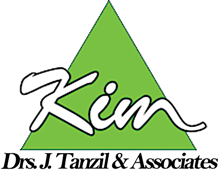In economics, a business is an organization that sells goods or services to consumers or other businesses, to earn a profit. Historically the business word of the English language business, from the basic word busy which means “busy” in the context of individuals, communities, or society. In the sense, busy doing activities and jobs that bring benefits.
In a capitalist economy, where most businesses are privately owned, businesses are formed to gain profit and increase the prosperity of their owners. Owners and operators of a business get rewards according to the time, effort, or capital they provide. But not all businesses pursue such profits, such as cooperative business that aims to improve the welfare of all members or government institutions aimed at improving the welfare of the people. This business model is in contrast to the socialistic system, where large businesses are mostly owned by governments, the general public, or unions.
Etymologically, business means circumstances in which a person or group of people is busy doing profitable work. The word “business” itself has three uses, depending on the scope – the singular use of the word business can refer to a business entity, a juridical (technical), technical, and economic unit aimed at making a profit or profit. Broader usage may refer to specific market sectors, such as “television business.” The most extensive use refers to all activities undertaken by the community of goods and services providers. But the exact definition of “business” is still a matter of debate to this day.

